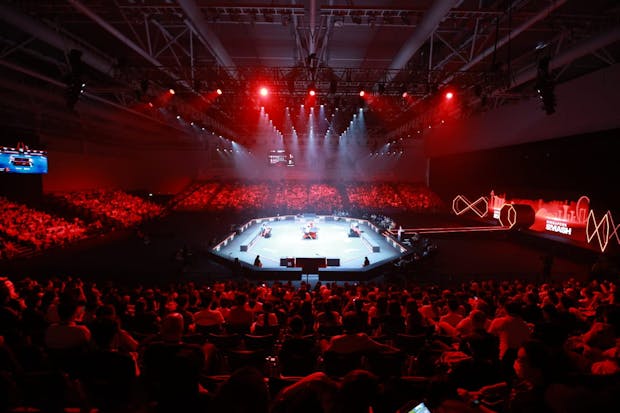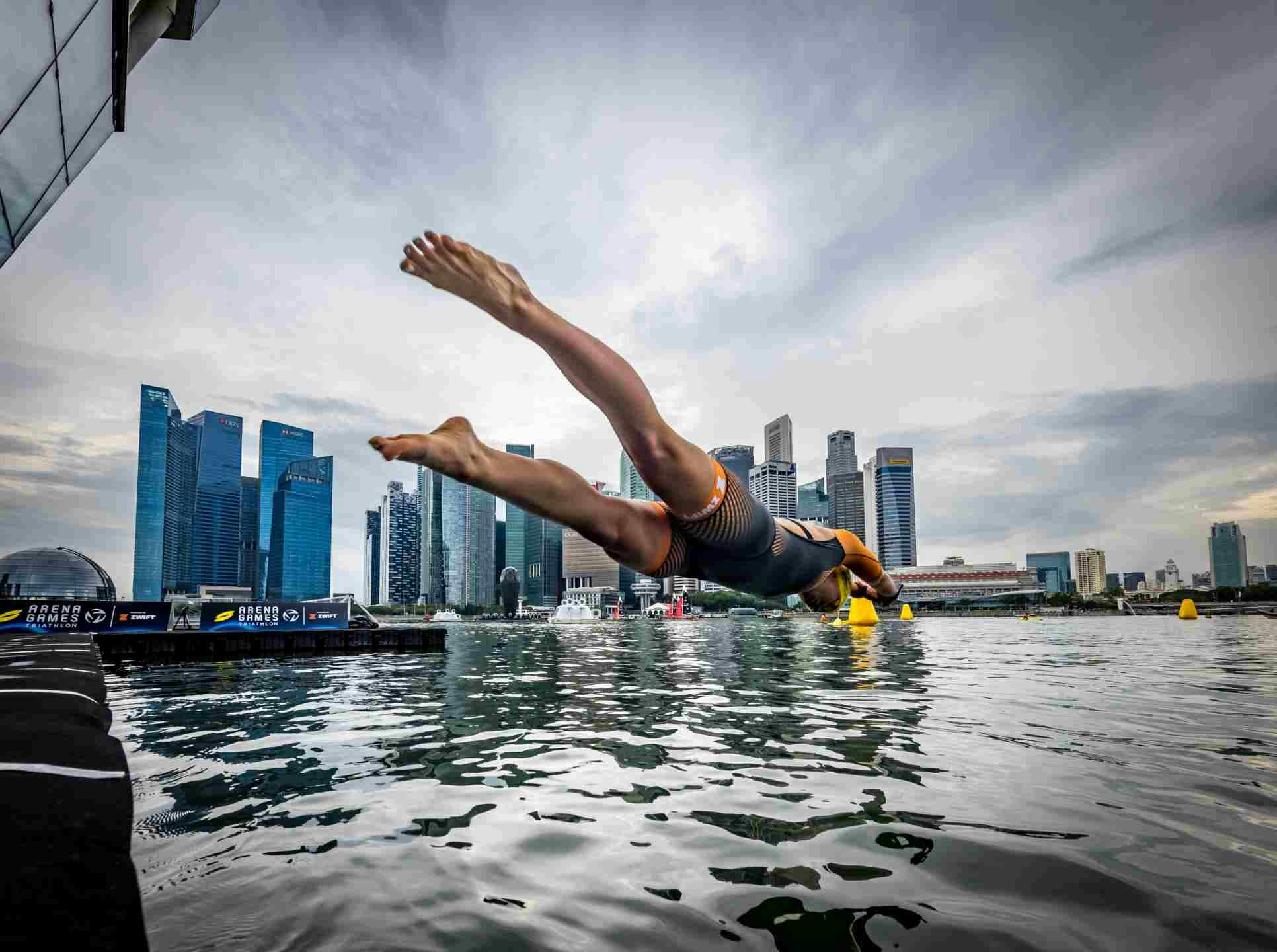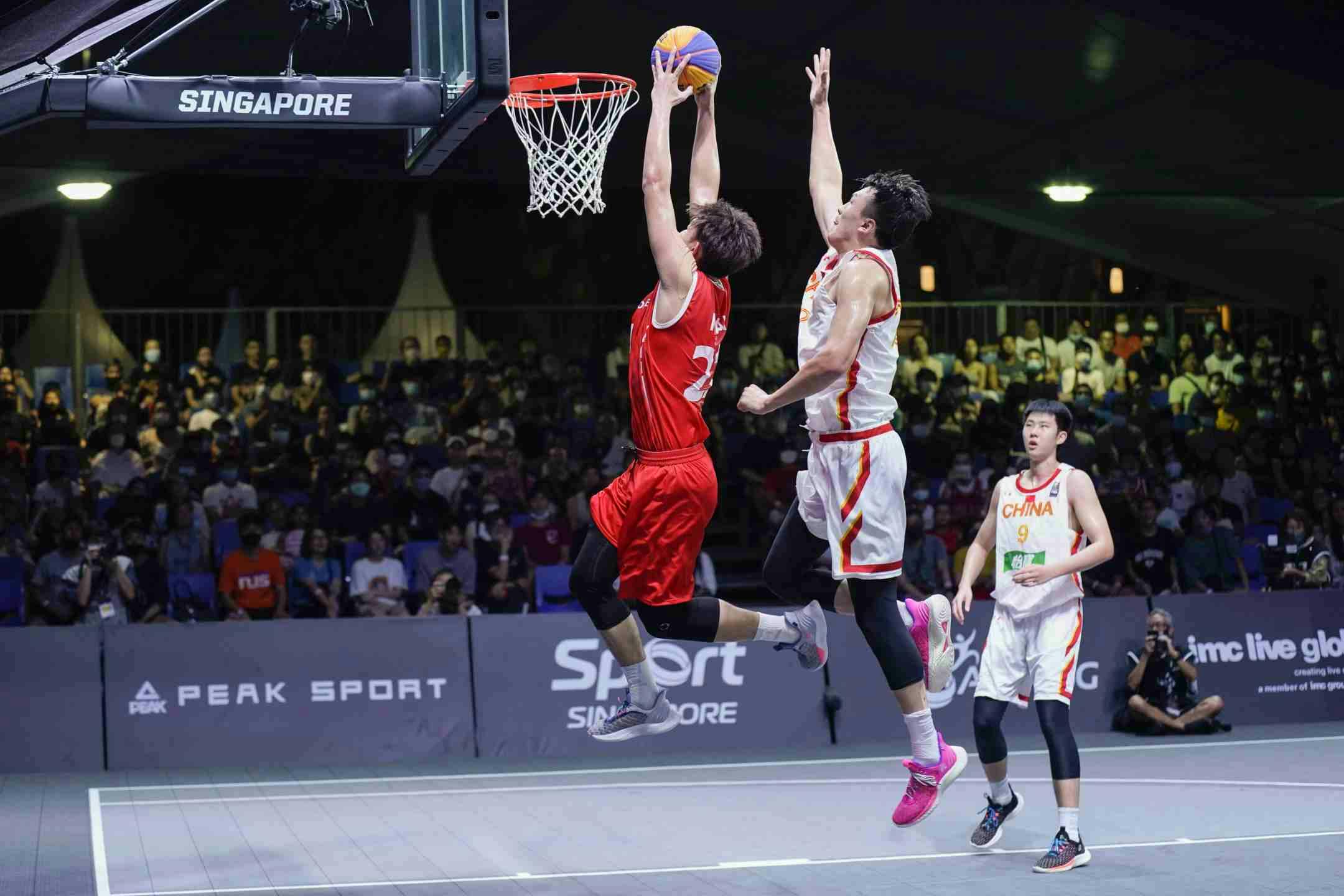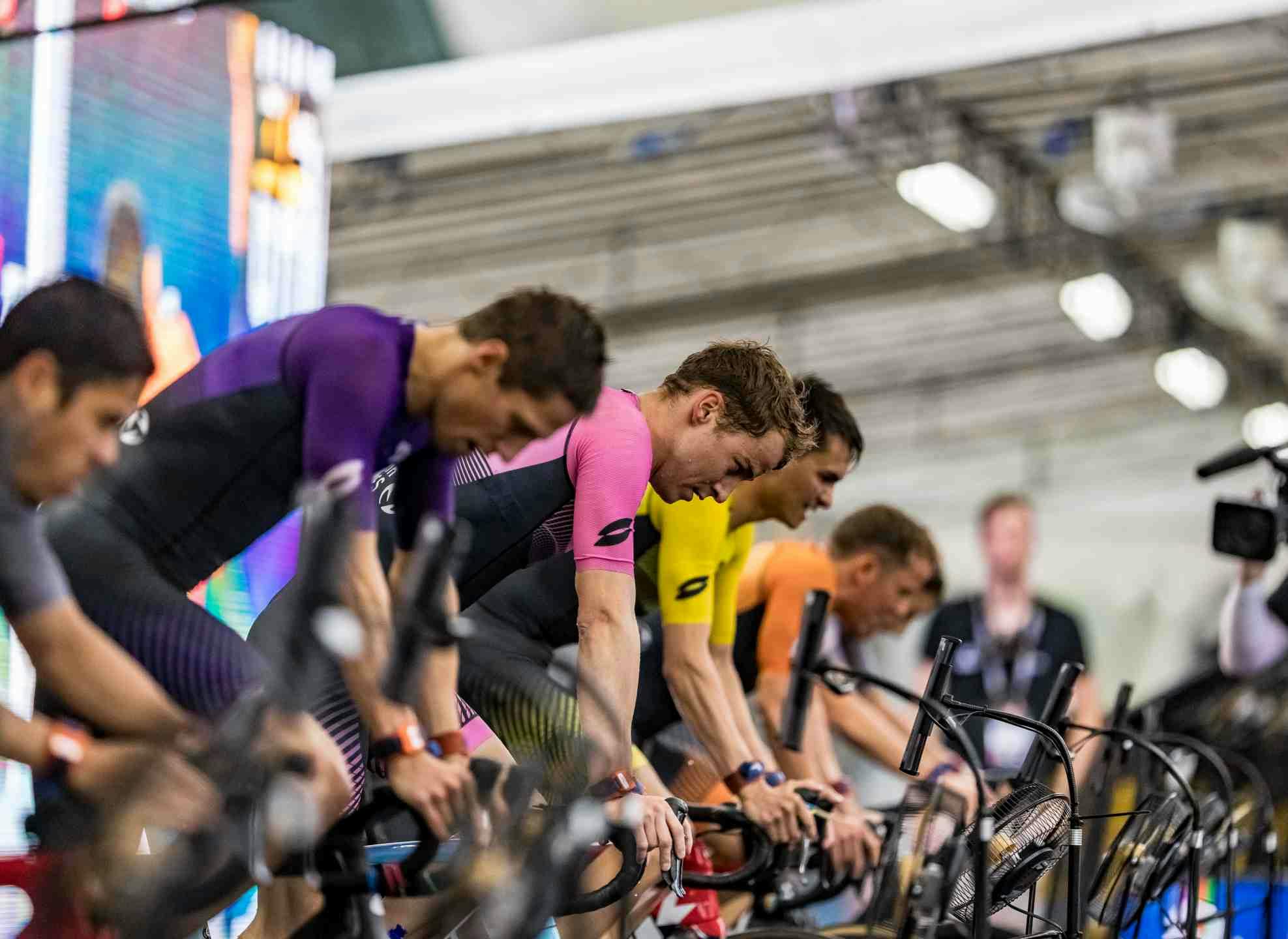
Over the past two decades, Singapore has established a reputation as a place that can quickly and efficiently host a wide range of sports events.
As it looks to the future, the city wants to be a cradle for innovation in sports events hosting, embracing new technology, new event formats and sustainability.
Today, there is more pressure than ever on sports event organisers to innovate. There are more high-quality events than ever competing for consumers’ time and money. Singapore is pitching itself as a host that can help event organisers experiment with and execute new ideas, and reach new audiences.
Speaking to SportBusiness recently, Roy Teo, chief – industry development, technology and innovation, at Sport Singapore (SportSG), said: “Singapore is not just a host city, but a city that can make a difference in the sports that we host.”
Proven host
Singapore has a track record as a choice destination for many sporting events due to unique selling points including good governance, high quality sporting infrastructure and a high quality destination experience for visitors.
Fiba, which recently made Singapore the host city of its 3×3 Asian Cup for the next three years, sees it as a gateway to Asia and a location that embodies some of the key brand propositions of 3×3 basketball. “Singapore has been on Fiba 3×3’s wish list from the very start, especially after the first-ever official 3×3 competition at the 2010 Youth Olympic Games,” says Alex Sanchez, the federation’s 3×3 managing director. “It possesses all the ingredients of 3×3: urban, youthful and innovative. One of the main regions of growth for 3×3 has always been South-East Asia, with Singapore being the natural pivot for us in the region.”
Another event that chose Singapore to debut its inaugural edition is Arena Games Triathlon. Michael d’Hulst of Super League Triathlon, which this year hosted a landmark Arena Games Triathlon finals in the city, says: “For international sports rights-holders to do something in Asia, the stakeholder map can be quite confusing…As an entry point, Singapore is a great venue.”
High-quality infrastructure and visitor experiences are prized by event organisers. A spokesperson for the HSBC Singapore Rugby Sevens says: “Singapore offers an overall event experience that is top notch from end to end. That starts from the airport, and continues through transport, hotels, and overall tourism attractiveness.”
This attractiveness as a location for visitors is good for commercialising events, Fiba’s Sanchez says: “Singapore is one of the top-of-mind world cities, hence has a strong marketing halo.”
These credentials have helped Singapore establish a strong events slate. The Formula 1 Grand Prix, running since 2008, is the crown jewel. Other annual fixtures include the HSBC Women’s Champions LPGA golf tournament, the Singapore Open men’s Asian Tour golf tournament, the Singapore Rugby Sevens, a World Table Tennis Grand Smash, and the Standard Chartered Singapore Marathon.
The city is also a regular host of pre-season matches for major European football teams and top-class mixed martial arts events by locally based promoter ONE Championship as well as global group Ultimate Fighting Championship.
Recently, it has been expanding its esports calendar, staging events including Dota’s The International in July 2022 and the Global Esports Federation’s inaugural Global Esports Games in December 2021.

Virtual exploration
While Singapore’s existing strengths are clear, they are no guarantee of future success. Across the global sports industry, there is a sense we are moving into a new era. Digital media and technology are reshaping consumer preferences, media consumption and event experiences. Digitally native younger generations have different tastes and attitudes when it comes to sport than older generations. The pandemic encouraged exploration and development of virtual and remote alternatives to traditional, mass-gathering experiences.
SportSG’s Teo says Singapore’s events strategy is embracing these shifts, looking at new types of events and new ways of staging events: “A lot of sports are already moving in this direction of innovation, in using technology, in terms of their format,” he says.
“Singapore can play a role in offering a venue for innovation to take place. We are nimble enough to move quickly. We have different venues [and] we have different ways of overlaying venues. These things give us an edge in terms of how we can test new ideas.”
Singapore’s appointment as host of next year’s inaugural Olympic Esports Week (OEW) points towards its vision for the future of its sports event hosting activity.
The OEW is the next step in the International Olympic Committee’s exploration of gaming. Aiming to engage new audiences, particularly young audiences, the OEW is a week of gaming competitions and exhibitions. Competitions will take place based within games created in collaboration with international federations. Exhibitions of virtual sports and gaming technology, and panel discussions and education sessions, will help attendees get to grips with this new world.

Announcing the OEW, IOC president Thomas Bach said: “The first Olympic Esports Week marks an important milestone in our ambition to support the growth of virtual sports within the Olympic Movement. We believe the exciting new format of our virtual sports competition, with live finals to be staged for the first time, is an opportunity to collaborate further with esports players and to create new opportunities for players and fans alike. It is a perfect opportunity to be partnering with Singapore, which has a history of supporting innovation in the Olympic Movement, hosting the inaugural Youth Olympic Games in 2010.”
Full details of the OEW will be unveiled in early 2023. A taster of the IOC’s ambitions in gaming was given at the Olympic Virtual Series in 2021. The 10.5-hour global broadcast event saw competitions in five sports games, including baseball, cycling, rowing, sailing and motor racing.
Singapore is particularly keen to explore the area of ‘virtual sports’, including esports and gaming events, as well as hybrid events that combine virtual and real-life competitions.
Teo says: “Virtual sports are breaking down physical barriers, gender barriers, and ability barriers. Can able-bodied athletes play with less able-bodied athletes in the same game? [In virtual sports] the answer is yes…This is a big change in the sporting world. And I think if we are prepared for it, we can do very well.”
Aside from fully virtual sports, there is also the arena of hybrid sports that has gained popularity in the recent years. In July 2022, SLT’s Arena Games Triathlon combined virtual and real-life elements in a compelling new concept. Professional triathletes competed on treadmills and stationary bicycles, with their progress rendered in virtual worlds for competitors and audiences alike to view in real time. The swim section was a real-life, open-water swim. But this too had a novel element – it was the first-ever swimming event to take place in Marina Bay, the waterfront reservoir surrounded by Singapore’s high-rise cityscape.
New, shorter formats of traditional sports are a long-running area of exploration and innovation. But the focus on them is only increasing as sports realise they are operating in an ever-more competitive entertainment and leisure landscape.
Fiba’s 3×3 competitions, including the Asia Cup in Singapore, are an important piece of the international basketball federation’s work to reach new and younger audiences.
Teo says new formats, appealing to new audiences, also help Singapore hit an important target for its event hosting: getting Singaporean citizens active and engaged in sport.
He says: “We want new formats that appeal not only to the traditional audience for the sport, but also people who haven’t been watching. How do we bring them into the sport? One of our goals is to inspire the community, inspire the people. If they are not attracted by traditional formats, it’s then a matter of how we can tweak the formats, but still retain the essence of the sport. Perhaps with different formats. Perhaps with different presentation…”
Environmental sustainability is another area where Singapore is looking to innovate. Shorter events, carbon offsetting, extensive use of public transport and having a small geographic footprint are some of the elements being brought to bear, Teo says.
This year’s Fiba 3×3 Asia Cup was a testbed for a new sustainability framework. This went down to details like reducing printing of paper programme sheets, having reusable cutlery instead of disposable cutlery, and giving athletes and officials public transport cards for travel instead of ferrying them with private cars.

Innovating into the future
Singapore has always been an innovator when it comes to sports event hosting, Teo says. The flagship Formula 1 race was the motorsport series’ first-ever night race. It was also the first street circuit in Asia. Hosting the first-ever Youth Olympic Games in 2010 was also a resounding testament to Singapore’s ability to innovate.
In a global entertainment landscape that is more competitive than ever, events and event hosts must continue innovating and bringing fresh ideas and experiences to the table. “You need to rethink how people watch your events, how you engage your spectators, how you engage people around the world…We are moving into uncharted waters for sports events,” Teo says.
To plot a course in these waters, Singapore is grasping technology, new formats and other innovations, and adding them to existing, polished events-hosting capabilities. The ambition is to retain its place as one of the world’s blue-chip sports events hosts well into the future.